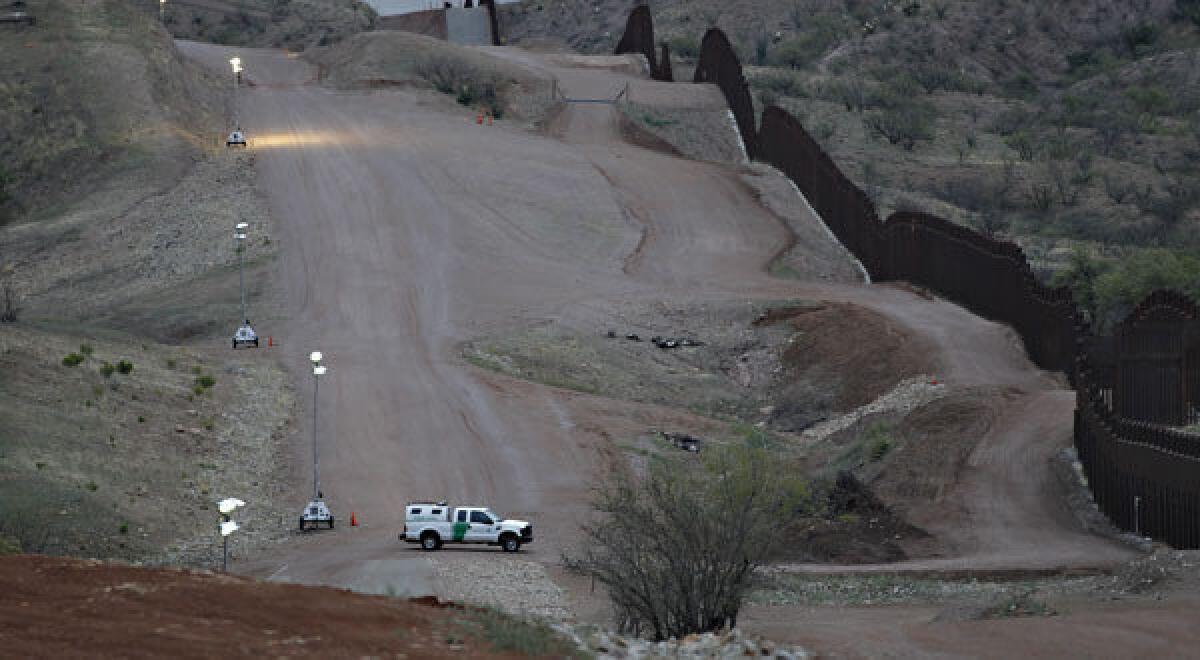Illegal immigration to U.S. stays down, Pew’s latest numbers show

- Share via
There are about 11.1 million unauthorized immigrants living in the United States, a figure that has remained relatively constant over the last two years, according to the latest estimates released Thursday by the Pew Hispanic Center.
The numbers come as President Obama prepares to push immigration reform as a key part of his second-term agenda. They also come as analyses highlight the greater role Latinos played in the recent presidential election.
The 11.1-million figure compares with 11.2 million in 2010 and 11.1 million in 2009.
The number of illegal immigrants in the U.S., which stood at about 8.4 million in 2000, peaked at about 12 million in 2007 and has been tapering since, according to the analysis prepared by demographers Jeffrey Passel and D’Vera Cohn of the Hispanic Center, part of the Pew Research Center.
The decrease was driven mainly by a drop in the number of immigrants arriving from Mexico, the largest source of migration to the U.S. The Pew Hispanic Center reported earlier this year that net immigration from Mexico to the United States had stopped and possibly reversed through 2010.
At the peak, about 770,000 immigrants were arriving annually from Mexico, the majority of them illegally. By 2010, the inflow had dropped to about 140,000, and the majority arrived legally, according to the center’s estimates.
In addition, the number of Mexicans and their children who moved from the United States to Mexico between 2005 and 2010 roughly doubled compared with the five-year period a decade earlier, the center said.
Pew’s estimates are based on data mainly from the Current Population Survey, a monthly polling of about 55,000 households conducted jointly by the Bureau of Labor Statistics and the Census Bureau.
Despite the falling or stable numbers, the political debate on immigration has been rising. Immigration-- and whether to provide a path to U.S. citizenship -- was a litmus test during the GOP battle for the presidential nomination.
In a bid to win the Republican nomination, Mitt Romney moved to the right to appease conservatives who oppose what they call amnesty for undocumented immigrants. The shift made it difficult for the former Massachusetts governor to appeal to Latinos in the general election.
Obama won about 71% of the Latino vote, compared with Romney’s 27%, according to exit polls cited by Pew. That was the best showing by a Democrat since Bill Clinton in 1996.
Latinos accounted for about 10% of all presidential voters this year, a record turnout for the group and a figure that is expected to increase in coming years.
Recognizing the shifting political winds, Republicans have offered measures that would give students who graduate with advanced technology-related degrees some protection so they could continue to work in the United States. Another bill offers some legal status to young immigrants -- the so-called Dreamer group -- who were so active in bringing attention to the issue.
Democrats have rejected those approaches, saying that any reform needs to be comprehensive by offering a path to citizenship.
ALSO:
Man in wheelchair charged in killing at Georgia gas station
Gay marriage in Washington state: 279 licenses in first six hours
One toke over the line in Washington state, where pot is now legal
More to Read
Sign up for Essential California
The most important California stories and recommendations in your inbox every morning.
You may occasionally receive promotional content from the Los Angeles Times.











